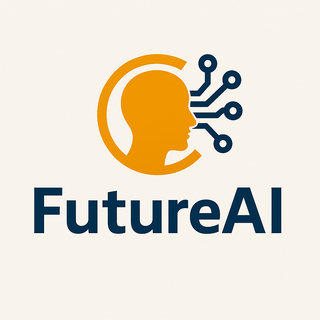The Importance of Artificial Intelligence in the Future
Artificial Intelligence (AI) is no longer just a buzzword – it is transforming our world at an unprecedented pace. From simple automation to complex decision-making systems, AI is quickly becoming an integral part of industries, businesses, healthcare, education, and even our personal lives. As we move forward into a more technologically advanced world, the importance of AI in shaping the future cannot be overstated.
1. The Growth of AI: A Global Trend
Over the past decade, AI has grown significantly, moving beyond theoretical research into real-world applications. From chatbots and recommendation systems to autonomous vehicles and medical diagnostics, AI is now everywhere. Global investments in AI are soaring, and it is expected that the global AI market will surpass $500 billion by 2030.
2. AI in Healthcare
AI is revolutionizing healthcare in numerous ways. Algorithms can now analyze medical images, detect diseases earlier than ever before, and help doctors make more accurate diagnoses. Virtual assistants and chatbots provide basic medical advice, reducing the burden on healthcare systems. AI can also track patient data and provide personalized treatment recommendations, improving the quality of care.
3. AI in Education
AI is reshaping education by making learning more personalized and efficient. Intelligent tutoring systems adapt to the needs of individual students, while automated grading helps teachers save time. AI can analyze student performance and offer insights to help educators improve learning outcomes. The future of education will likely involve AI-powered virtual classrooms and personalized learning paths.
4. AI in Business and Industry
Businesses are rapidly adopting AI to improve efficiency and gain a competitive edge. AI is used in customer service, fraud detection, inventory management, and even human resources. Predictive analytics helps companies understand consumer behavior, forecast trends, and make smarter decisions. With AI, businesses can automate repetitive tasks, allowing humans to focus on innovation and strategy.
5. AI in Transportation
AI is driving the future of transportation with technologies like self-driving cars, drones, and intelligent traffic management systems. Autonomous vehicles use AI to understand their surroundings and make real-time decisions. AI also optimizes logistics, route planning, and fleet management, reducing costs and improving delivery times.
6. AI in Finance
In the financial sector, AI is being used to detect fraudulent transactions, automate trading, and provide personalized banking experiences. Robo-advisors help users manage their investments, while machine learning models assess credit risk and streamline loan approvals. AI enables financial institutions to serve customers more efficiently and securely.
7. AI in Agriculture
AI plays a crucial role in modern agriculture. Smart farming techniques use AI for soil analysis, crop monitoring, and weather prediction. Drones and sensors powered by AI provide farmers with real-time data to make informed decisions. These innovations lead to higher crop yields, efficient resource usage, and reduced environmental impact.
8. Ethical Challenges and Responsible AI
As AI becomes more powerful, it brings ethical challenges. Issues like algorithmic bias, job displacement, privacy concerns, and data misuse must be addressed. Governments, companies, and researchers must work together to create ethical frameworks and ensure that AI technologies are used for the benefit of society. Transparency, fairness, and accountability are key principles of responsible AI.
9. AI and the Job Market
There is concern that AI will replace many human jobs. While some roles will be automated, AI will also create new jobs in tech, data science, AI training, and cybersecurity. The workforce must adapt by learning new skills and embracing lifelong learning. Jobs of the future will require a balance of technical expertise and human creativity.
10. AI in Sustainability and Climate Action
AI is a powerful tool in the fight against climate change. It can optimize energy consumption, predict natural disasters, and support the development of renewable energy sources. AI helps monitor deforestation, pollution levels, and endangered species. These applications are vital for creating a more sustainable planet.
11. AI in Daily Life
Most people already use AI daily without realizing it – through voice assistants, facial recognition, personalized ads, or streaming recommendations. Smart home devices, wearable tech, and virtual assistants will continue to evolve, making everyday life more convenient and connected.
12. Human-AI Collaboration
The future of AI is not about replacing humans but enhancing human capabilities. AI can assist in complex problem-solving, creative processes, and scientific research. Human-AI collaboration can lead to breakthroughs in medicine, space exploration, and environmental protection. Working together, we can achieve more than either humans or machines could alone.
Conclusion
Artificial Intelligence is transforming the world around us. From healthcare and education to finance and agriculture, AI is playing a vital role in improving lives and solving global problems. However, with great power comes great responsibility. As we integrate AI into every aspect of our lives, we must ensure it is used ethically, transparently, and inclusively.
AI is not the future – it is the present, and its influence will only grow. By embracing AI, investing in skills development, and fostering human-AI collaboration, we can build a smarter, more efficient, and more sustainable future for everyone.




Post a Comment
0Comments